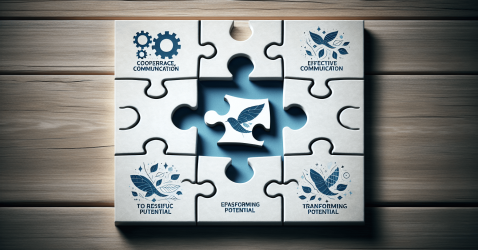Self-Care For The Solo Entrepreneur: Maintaining Your Well-being
Running a business on your own can be a thrilling and rewarding experience, but it also comes with its fair share of challenges. From managing your finances and juggling multiple tasks to maintaining a healthy work-life balance, being a solo entrepreneur can sometimes take a toll on your well-being. In this article, we’ll explore the importance of self-care for solo entrepreneurs and provide you with practical tips to maintain your mental and physical health while navigating the entrepreneurial journey. So, grab a cup of tea, find a comfortable spot, and let’s dive into the world of self-care for the solo entrepreneur.
Recognizing the Importance of Self-Care
As a solo entrepreneur, it can be easy to get caught up in the hustle and bustle of running your own business. However, it is crucial to recognize the importance of self-care. Taking care of yourself not only benefits your overall well-being but also has a direct impact on your productivity and success as an entrepreneur. By prioritizing self-care, you are investing in your physical, mental, and emotional health, which in turn enables you to show up as the best version of yourself in both your personal and professional life.
Understanding the Unique Challenges Faced by Solo Entrepreneurs
Being a solo entrepreneur comes with its own set of challenges. Unlike traditional employees, you are solely responsible for making decisions, managing tasks, and meeting deadlines. The pressure to succeed can be overwhelming, and it’s easy to neglect your well-being in pursuit of your goals. It’s important to acknowledge and understand these unique challenges so that you can tailor your self-care routine to address them effectively.
The Link between Self-Care and Productivity
Contrary to popular belief, self-care is not a luxury but a necessity. Taking the time to care for yourself actually improves your productivity as a solo entrepreneur. When you prioritize self-care, you are better equipped to tackle the demands and challenges of entrepreneurship. By ensuring you have the physical and mental energy, you are able to focus and perform at your best, leading to increased efficiency and effectiveness in your work.
Benefits of Prioritizing Your Well-being
Prioritizing your well-being as a solo entrepreneur comes with numerous benefits. First and foremost, it improves your overall quality of life. When you take care of yourself, you experience increased happiness, reduced stress levels, and improved mental and emotional well-being. Additionally, a well-cared-for entrepreneur is better equipped to make clear and focused decisions, maintain strong relationships, and adapt to changes or challenges that may arise in the business. Your personal well-being directly impacts the success and sustainability of your business, making self-care a crucial aspect of entrepreneurial life.
Creating a Self-Care Routine
Now that you understand the importance of self-care, it’s time to create a routine that works for you. By following these steps, you can establish a self-care routine that is tailored to your personal needs and goals.
Identifying Your Personal Needs and Goals
The first step in creating a self-care routine is identifying your personal needs and goals. Take some time to reflect on what aspects of your physical, mental, and emotional well-being require attention. It might be getting enough exercise, improving your sleep schedule, or managing stress more effectively. Once you have identified your needs, you can set specific goals to address them.
Setting Realistic Expectations
When establishing your self-care routine, it’s essential to set realistic expectations. As a solo entrepreneur, your schedule may be demanding, but remember that self-care doesn’t have to be time-consuming or complicated. Start by incorporating small self-care practices into your daily life, gradually building them into your routine. Setting realistic expectations ensures that your self-care routine is practical and sustainable.
Establishing a Daily or Weekly Self-Care Schedule
To make self-care a priority, it’s important to incorporate it into your daily or weekly schedule. Set aside dedicated time for self-care activities such as exercise, meditation, or engaging in a hobby you enjoy. By scheduling self-care, you are more likely to follow through and make it a regular practice.
Incorporating Mindfulness and Relaxation Techniques
Incorporating mindfulness and relaxation techniques into your self-care routine can greatly benefit your mental and emotional well-being. Activities such as meditation, deep breathing exercises, or practicing gratitude can help you relax, reduce stress, and improve your focus. Experiment with different techniques to find what works best for you and incorporate them into your daily routine.
Physical Well-being
Maintaining your physical well-being is essential as a solo entrepreneur. Your body is your most valuable asset, so taking care of it has a direct impact on your ability to perform at your best. Here are some tips to prioritize your physical well-being:
Maintaining a Healthy Diet
Eating a balanced and nutritious diet is key to fueling your body and providing the energy you need as a solo entrepreneur. Incorporate plenty of fruits, vegetables, lean proteins, and whole grains into your meals. Avoid excessive caffeine and sugary snacks, as they can lead to crashes and decreased productivity.
Staying Active and Incorporating Exercise into Your Routine
Regular exercise is crucial for maintaining physical health and boosting mental well-being. Find an exercise routine that works for you and commit to it regularly. It can be as simple as going for a walk, practicing yoga, or joining a fitness class. Aim for at least 30 minutes of moderate-intensity exercise most days of the week.
Prioritizing Sleep for Optimal Performance
Adequate sleep is essential for overall health and well-being. As a solo entrepreneur, it can be tempting to sacrifice sleep to meet deadlines or tackle work tasks. However, lack of sleep can negatively impact your cognitive abilities, decision-making skills, and productivity. Aim for 7-9 hours of quality sleep each night to ensure you wake up refreshed and ready to conquer the day.
Mental and Emotional Well-being
Taking care of your mental and emotional well-being is just as important as physical health. As a solo entrepreneur, it’s crucial to manage stress, develop coping mechanisms, seek support, and practice mindfulness and meditation. Here’s how you can prioritize your mental and emotional well-being:
Managing Stress and Anxiety
Running a business can be stressful, so it’s important to learn effective stress management techniques. Identify what triggers stress and find healthy ways to cope with it. This might include deep breathing exercises, taking breaks, or engaging in activities that help you relax.
Developing Coping Mechanisms
Life as a solo entrepreneur is full of ups and downs, so it’s vital to develop coping mechanisms to deal with challenges and setbacks. This might involve practicing positive self-talk, seeking professional help when needed, or engaging in activities that bring you joy and relaxation.
Seeking Support and Building a Network
Don’t underestimate the power of a supportive community. Surrounding yourself with like-minded professionals who understand the unique challenges of entrepreneurship can provide invaluable support and encouragement. Join professional associations or online groups, attend networking events, and build relationships with others who can offer guidance and motivation.
Practicing Mindfulness and Meditation
Mindfulness and meditation are powerful tools for managing stress, improving focus, and cultivating a positive mindset. Take a few minutes each day to practice mindfulness, whether through meditation, deep breathing exercises, or simply paying attention to the present moment. This practice can help reduce anxiety and enhance overall well-being.
Setting Boundaries and Embracing Work-Life Balance
As a solo entrepreneur, it’s easy to blur the lines between work and personal life. However, setting boundaries and embracing work-life balance is essential for your well-being. Here are some strategies to help you achieve a healthy balance:
Defining Clear Boundaries between Work and Personal Life
Clearly define the boundaries between your work and personal life to prevent burnout and unnecessary stress. Establish designated work areas and avoid bringing work into your personal spaces. Set specific times for work and make a conscious effort to disconnect from work-related tasks outside of those hours.
Creating a Dedicated Workspace
Having a dedicated workspace can help create a clear separation between work and personal life. Designate a specific area in your home or rent a dedicated workspace where you can focus solely on your business activities. This physical separation can enhance productivity and make it easier to switch off from work outside of designated hours.
Establishing Regular Work Hours
Establishing regular work hours can provide structure and prevent overworking. Set specific times for when you will start and finish work each day, as well as designated breaks. Communicate these hours to clients, partners, and colleagues to manage expectations and avoid unnecessary interruptions during your personal time.
Taking Breaks and Time Off
Taking regular breaks and time off is essential for rejuvenation and preventing burnout. Incorporate short breaks throughout your workday to give your mind and body a chance to rest and recharge. Additionally, plan and take regular vacations or time off to disconnect completely from work and allow yourself to relax and rejuvenate.
Avoiding Burnout and Overworking
Burnout is a common risk for solo entrepreneurs, but it can be avoided by implementing effective strategies. Here’s how you can prevent burnout and avoid overworking:
Recognizing the Signs of Burnout
It’s important to recognize the signs of burnout in order to address it promptly. Common signs include fatigue, decreased productivity, chronic stress, and a feeling of detachment from work. If you notice these signs, it’s crucial to take action and prioritize self-care to prevent burnout from worsening.
Managing Your Workload and Saying No to Overcommitment
As a solo entrepreneur, it’s easy to take on too much and overcommit yourself. Learn to manage your workload effectively by prioritizing tasks, delegating when possible, and saying no to additional commitments that exceed your capacity. By setting realistic expectations and boundaries, you can prevent burnout and maintain a healthy work-life balance.
Utilizing Time Management Techniques
Effective time management is essential for achieving a healthy work-life integration. Use techniques such as prioritizing tasks, setting deadlines, and breaking down complex projects into manageable steps. This allows you to work efficiently and avoid the stress that comes with last-minute rushes or missed deadlines.
Maintaining a Healthy Work-Life Integration
Instead of striving for the elusive work-life balance, aim for a healthy work-life integration. Understand that there will be times when work requires more attention, but also prioritize your personal life and self-care. Be flexible and adaptable, allowing yourself to switch between work and personal life as needed, while still maintaining boundaries to prevent burnout.
Dealing with Isolation and Loneliness
Solo entrepreneurship can sometimes feel isolating and lonely, especially if you work from home or have limited interactions with others. To combat these feelings, it’s important to actively seek community and networking opportunities. Here’s how you can deal with isolation and loneliness:
Finding Community and Networking Opportunities
Attend local business events, join networking groups, or reach out to other entrepreneurs in your industry. Building relationships with like-minded professionals can provide support, collaboration opportunities, and valuable connections.
Joining Professional Associations or Online Groups
Professional associations and online groups offer virtual communities where you can connect with other professionals in your field. Participate in discussions, share experiences, and seek advice from others who understand the unique challenges and rewards of entrepreneurship.
Attending Events and Conferences
Attending events and conferences related to your industry can be a great way to expand your network, gain new insights, and combat feelings of isolation. Take advantage of these opportunities to connect with others, learn from experts, and find inspiration to fuel your entrepreneurial journey.
Building Relationships with Like-Minded Professionals
Nurture relationships with other professionals who share similar goals and aspirations. Schedule regular coffee dates, networking lunches, or virtual meetups to exchange ideas, offer support, and celebrate successes together.
Managing the Entrepreneurial Mindset
As a solo entrepreneur, managing your mindset is key to your success. Cultivating a positive mindset, setting realistic goals, dealing with failure, and practicing self-reflection are essential for continuous growth. Here’s how you can manage your entrepreneurial mindset:
Cultivating a Positive Mindset
A positive mindset is a powerful tool for overcoming challenges and staying motivated. Practice positive self-talk, visualize success, and surround yourself with positivity. By embracing a positive mindset, you can tackle obstacles with resilience and maintain a sense of optimism in the face of adversity.
Setting Realistic Goals and Celebrating Achievements
Set realistic and achievable goals to keep yourself focused and motivated. Break down larger goals into smaller milestones and celebrate each achievement along the way. Recognizing and celebrating your progress boosts confidence and provides motivation to keep moving forward.
Dealing with Failure and Learning from Setbacks
Failure is a natural part of the entrepreneurial journey. Instead of viewing failure as a setback, embrace it as an opportunity to learn and grow. Reflect on the lessons learned from each failure, adjust your approach, and move forward with newfound knowledge and resilience.
Practicing Self-Reflection and Continuous Growth
Regular self-reflection allows you to assess your progress, identify areas for improvement, and adapt your strategies as needed. Take time to reflect on your accomplishments, challenges, and values to ensure that your actions align with your long-term vision. Commit to continuous growth and personal development to thrive as a solo entrepreneur.
Taking Breaks and Practicing Leisure Activities
Incorporating breaks and leisure activities into your routine is essential for your overall well-being. Not only do they provide relaxation and enjoyment, but they also enhance your creativity and productivity. Here’s how you can prioritize breaks and leisure activities:
Incorporating Breaks and Downtime into Your Schedule
Schedule regular breaks throughout your workday to give your mind and body a chance to rest and recharge. Step away from your workspace, engage in a different activity, or simply take a few moments to stretch or practice deep breathing. These mini-breaks can rejuvenate your energy and improve focus.
Engaging in Hobbies and Leisure Activities
Make time for activities you enjoy outside of work. Engage in hobbies, whether it’s painting, playing an instrument, or gardening. Find activities that bring you joy and make you feel fulfilled, and incorporate them into your routine regularly.
Exploring New Interests and Learning Opportunities
Continue to explore new interests and learning opportunities outside of your business. This not only provides a break from work but also stimulates your mind and enhances personal growth. Take a class, read books on a variety of topics, or pursue activities that expand your knowledge and skills.
Traveling and Taking Vacations
Traveling and taking vacations is an excellent way to rejuvenate and gain new perspectives. Plan trips that allow you to disconnect from work, explore new places, and create lasting memories. Traveling helps prevent burnout, promotes creativity, and provides valuable downtime to recharge.
Adapting to Change and Evolving Needs
As a solo entrepreneur, embracing change and adapting to evolving needs is crucial for your success. This mindset allows for personal and professional growth. Here’s how you can adapt to change and evolve your self-care routine:
Flexibility and Resilience in the Face of Uncertainty
Embrace flexibility and resilience to navigate through uncertain times and changing business landscapes. Understand that change is inevitable and learn to adapt quickly. Cultivate a mindset that sees challenges as opportunities for growth and uses setbacks as stepping stones towards success.
Evaluating and Adapting Your Self-Care Routine
Regularly evaluate your self-care routine to ensure it aligns with your current needs. As your business evolves, your self-care needs may change as well. Adapt your routine accordingly to continue prioritizing your well-being and to maintain your ability to perform at your best.
Recognizing Evolving Needs and Adjusting Priorities
As you grow personally and professionally, your needs will naturally evolve. Pay attention to these changes and be aware of what is truly important to you. Adjust your priorities accordingly and make self-care a non-negotiable aspect of your life.
Embracing Personal and Professional Growth
Finally, embrace personal and professional growth as a continuous journey. Be open to new experiences, seek opportunities to learn and develop new skills, and be willing to step out of your comfort zone. By embracing growth, you can adapt to change, evolve as an entrepreneur, and maintain your overall well-being.
In conclusion, as a solo entrepreneur, taking care of yourself is essential not only for your personal well-being but also for the success of your business. By recognizing the importance of self-care and implementing a comprehensive self-care routine, you can thrive both personally and professionally. Prioritize your physical, mental, and emotional well-being, set boundaries, seek support, and embrace personal growth. Remember, a well-cared-for entrepreneur is a more effective and successful entrepreneur.

















